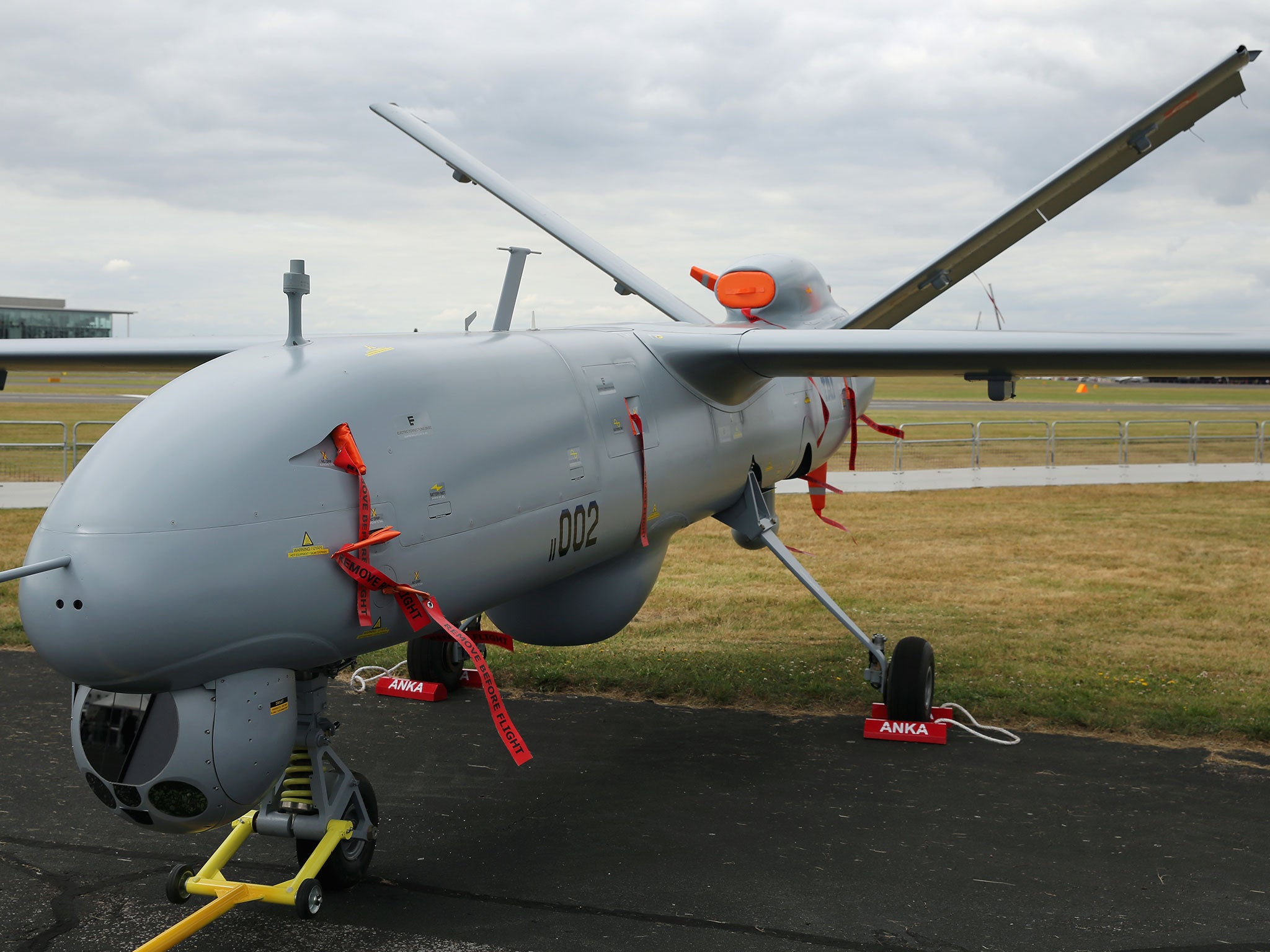Drones 'pose growing safety risk', warns British Airline Pilots Association
Rapid technological advances are outstripping the legislation that governs British skies, a Lords committee will hear

Your support helps us to tell the story
From reproductive rights to climate change to Big Tech, The Independent is on the ground when the story is developing. Whether it's investigating the financials of Elon Musk's pro-Trump PAC or producing our latest documentary, 'The A Word', which shines a light on the American women fighting for reproductive rights, we know how important it is to parse out the facts from the messaging.
At such a critical moment in US history, we need reporters on the ground. Your donation allows us to keep sending journalists to speak to both sides of the story.
The Independent is trusted by Americans across the entire political spectrum. And unlike many other quality news outlets, we choose not to lock Americans out of our reporting and analysis with paywalls. We believe quality journalism should be available to everyone, paid for by those who can afford it.
Your support makes all the difference.Remotely piloted drones flying in British airspace should be operated by fully qualified pilots and meet the same safety standards as commercial aircraft, according to the national body of airline pilots.
The British Airline Pilots Association (Balpa) will tomorrow tell a parliamentary committee that is investigating drone use that current rules governing who can operate Remotely Piloted Aircraft Systems (RPAS) are inadequate. It will argue that large unmanned craft pose a threat to the safety of other aircraft as well as people on the ground and “tougher rules” to govern their use are needed.
Jim McAuslan, general secretary of Balpa, said: “The use of larger unmanned aircraft will be a huge safety issue in the future; that’s why it’s vital to get the right measures in place now to protect airline passengers and UK residents. The bottom line is that any large drone should be as safe as if there were trained pilots at the controls, so operators must have an equivalent level of skill and expertise.”
His warning will be made to the House of Lords EU sub-committee, which is examining the safety and privacy implications of the “staggering” rise in drone numbers. Balpa fears advances in drone technology could soon lead to large commercial drones using the same airspace as traditional airliners.
Chris Cole, founder of the Drone Wars UK blog, said: “This is a welcome intervention by British airline pilots. There have been a number of serious injuries over the past year when small drones flown at public events have crashed.”
Under existing legislation, drone operators must seek Civil Aviation Authority (CAA) permission and demonstrate basic flying skills. However, Balpa is calling for better enforcement of flying restrictions. Drone pilots cannot fly within 150m of a city centre or an event of more than 1,000 people. It is also unlawful to fly within 50 metres of any person, structure, vehicle or vessel.
Yet, despite dozens of YouTube videos that seem to show drones breaching these rules, the CAA has only conducted seven investigations into drone misuse. The Information Commission has never investigated a drone case.
Peter Lee of Taylor Vinters, a leading commercial-drone law firm, warned against over reaction. “It would be crazy to block the rapid growth in drone use,” he said. “In some countries we have seen how excessive prohibitions and knee-jerk law create a vacuum that can be quickly filled by dangerous, unregulated drone pilots. It has become too easy to purchase an entry-level drone and treat it like a toy. The evidence is scattered across YouTube.
“There is certainly some way to go before larger drones can be fully integrated into the airspace. The CAA is leading the way with its permissive and flexible approach to drone integration but effective regulators need teeth and the CAA now desperately requires more resources to prosecute rogue operators.”
Join our commenting forum
Join thought-provoking conversations, follow other Independent readers and see their replies
Comments